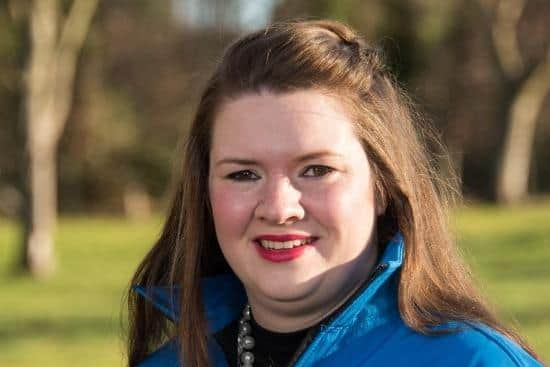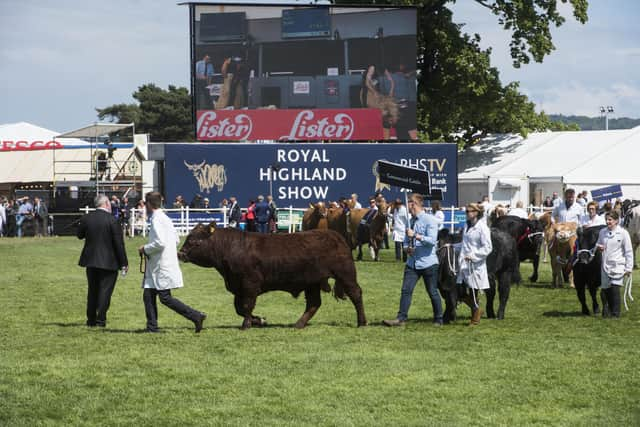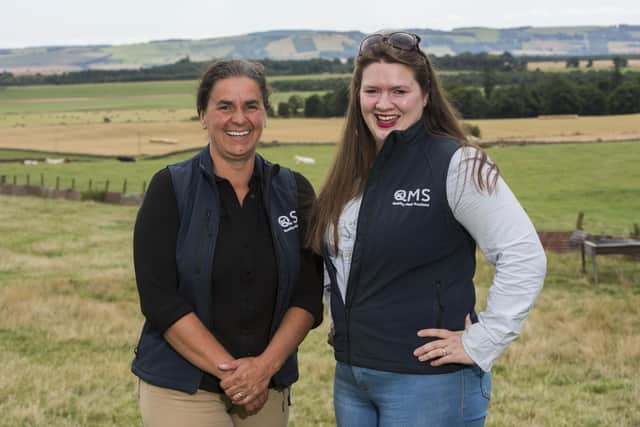Interview: Quality Meat Scotland CEO Sarah Millar on its new five-year strategy
"I'm very proud of the Scottish red meat sector – I think there's a massive opportunity to sell what we're doing, and to grow revenue across not just the UK but into other high-value markets across the globe,” says Mrs Millar, who was at the start of last year appointed to her current role, succeeding Alan Clarke, after having originally joined QMS in 2018.
The new plan aims to make Scotland THE choice for premium red meat, and will be finalised, formalised and adopted this year before being implemented next spring, taking the red meat sector through to 2029. "The next five years is going to be critical for us,” the QMS CEO also states, saying the timescale of the new plan covers the lead-up to initial Scottish Government climate targets and to 2030, by which time it is aimed that total turnover by farming, fishing, food and drink north of the Border will have doubled to reach £30 billion.
Advertisement
Hide AdAdvertisement
Hide AdQMS, the public body in charge of helping the Scottish red meat sector improve its efficiency and profitability, and maximise its contribution to the economy, says the nation’s beef, lamb and pork producers already boost Scotland’s coffers by more than £2.1bn a year, and support around 50,000 jobs.


It also comes amid still-elevated food inflation – which fell to 18.3 per cent in May from 19 per cent in April, the Office for National Statistics recently revealed, while Labour has found that the average UK household is paying more than £1,000 a year more for food than in 2020/21 – and in the wake of, say, Brexit and the Ukraine war.
Hurdles
“The food and drink sectors have been on a rollercoaster, because they have been the most exposed on a number of different levels... for the last four years, really, we've been in a fairly choppy place,” with firms consequently suffering a lack of confidence, the QMS boss says. “There are a lot of moving parts that individual businesses are having to manage on a day-to-day basis. If we don't get the basic building blocks right, [the] future, where there are a lot of moving parts, will become all the more difficult to manage.”
After Mrs Millar took the CEO steering wheel last year, the organisation set about listening to producers. She explains: “We really wanted to get back out on the road and really hear first-hand from everyone across the supply chain where the key critical challenges were. And what we heard from there is that businesses were looking for direction or... for some confidence in terms of what that future trading environment was going to look like."


One result involves the Quality Assurance schemes QMS runs; it markets the PGI labelled Scotch Beef and Scotch Lamb brands in the UK and abroad and promoting Scottish pork products under the Specially Selected Pork Banner, saying these guarantee that products have come from animals raised to some of the world’s strictest welfare standards. And the organisation has now made some improvements to how it manages “the evolution of those standards”, to ensure “that the people who ultimately are the bedrock of that Scottish red meat supply chain are at the forefront of any decision-making”. On that note, the RHS will also see QMS hosting open-forum surgeries with the Quality Assurance team, industry development team and the board on the likes of sustainable farming practices, and animal welfare.
The QMS CEO has in fact worked across pretty much all stages of the red meat supply chain, while she now lives in Angus on her husband’s family farm, having grown up on her own family’s hill farm in Lanarkshire. “I suppose I've been involved in food and farming since I was born,” she says, adding that she also worked in the family butchery business as a teenager and during her degree in Green Technology. She has also advised the Scottish Government on the development of post Brexit-rural policy as a member of the National Council of Rural Advisors.
Exciting
One priority of hers is tackling the skills gap, with independent retail butchers showing they can offer a “really attractive proposition to young people, which I think is really exciting when you think about how we can develop local economies”.


She is also a major advocate for sustainability, and says QMS is also due to unveil its net zero roadmap later this year, helping all businesses in the supply chain have access to “all the tools in the toolbox” to tackle challenges. “One of the big challenges around climate change is that it is going to impact where we can grow food globally, and how resilient a lot of our global food systems are,” she continues, citing forecasts of an increased risk of crop failure and of disease, for example.
Advertisement
Hide AdAdvertisement
Hide AdThis “ultimately will mean that how we produce food in the UK will become much more important” as we won’t be affected by climate change to the same degree – and Scotland in particular is very good at growing grass, ideal for livestock to munch on – amid recent global events such as coronavirus and the Ukraine conflict having put food security centre-stage. Scotland is also well-placed to export some low-emission, red meat products to certain high-value markets, she adds.
"I'm very proud to be Scottish. And I'm very proud of the resources that we have available to us and actually where they fit in that global stage. [But also] if we can grow calories at home, that means we're not reliant on other parts of the world to grow those calories. And that, for me, in terms of the role that we have in Scotland, is a fantastic place to be, as we face into that future challenge.”
Comments
Want to join the conversation? Please or to comment on this article.